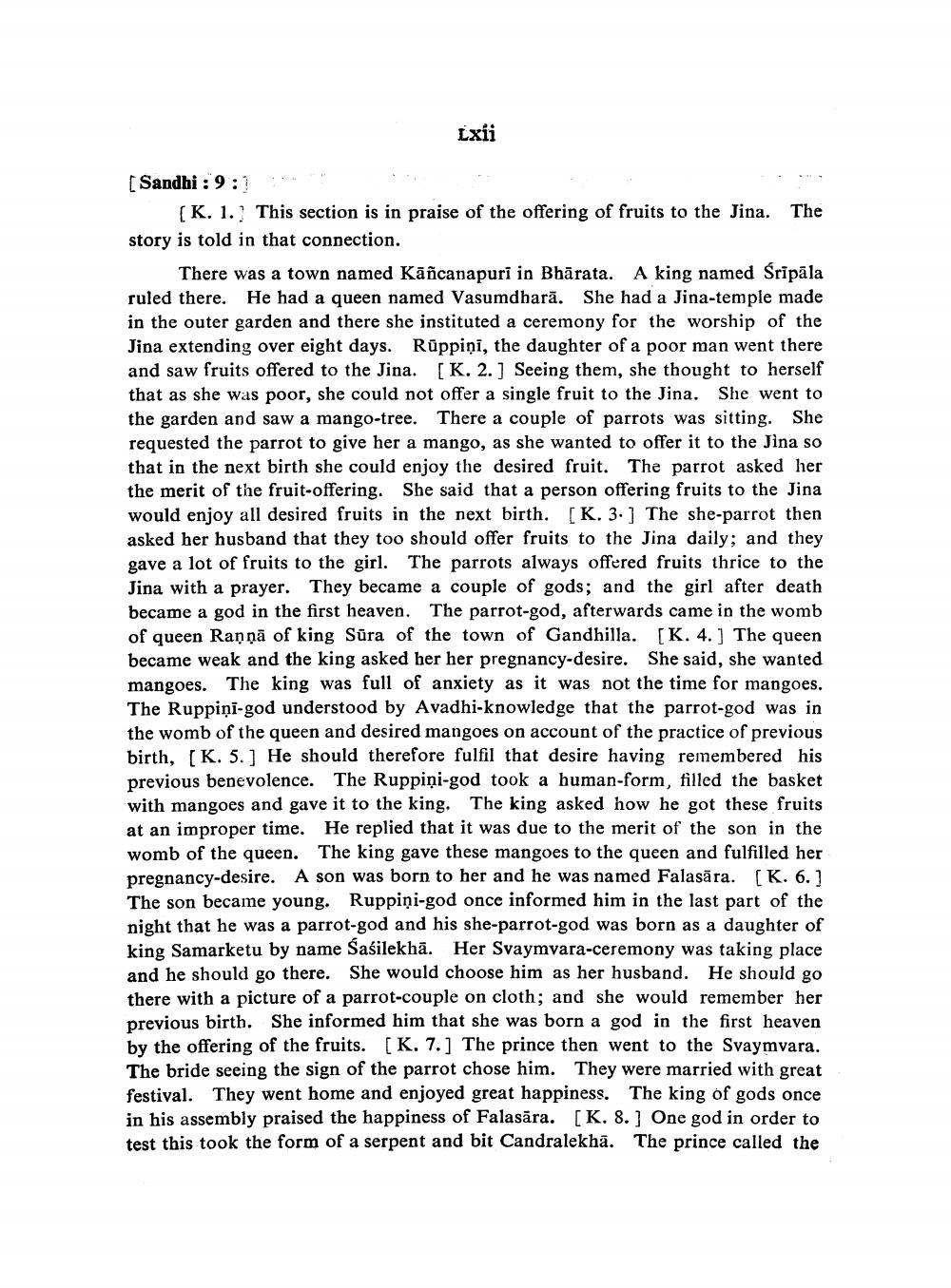________________
Lxii
[Sandhi : 9:1
[K. 1.] This section is in praise of the offering of fruits to the Jina. story is told in that connection.
There was a town named Kāñcanapuri in Bharata. A king named Śrīpāla ruled there. He had a queen named Vasumdhara. She had a Jina-temple made in the outer garden and there she instituted a ceremony for the worship of the Jina extending over eight days. Ruppini, the daughter of a poor man went there and saw fruits offered to the Jina. [K. 2.] Seeing them, she thought to herself that as she was poor, she could not offer a single fruit to the Jina. She went to the garden and saw a mango-tree. There a couple of parrots was sitting. She requested the parrot to give her a mango, as she wanted to offer it to the Jina so that in the next birth she could enjoy the desired fruit. The parrot asked her the merit of the fruit-offering. She said that a person offering fruits to the Jina would enjoy all desired fruits in the next birth. [K. 3.] The she-parrot then asked her husband that they too should offer fruits to the Jina daily; and they gave a lot of fruits to the girl. The parrots always offered fruits thrice to the Jina with a prayer. They became a couple of gods; and the girl after death became a god in the first heaven. The parrot-god, afterwards came in the womb of queen Ranņā of king Sura of the town of Gandhilla. [K. 4.] The queen became weak and the king asked her her pregnancy-desire. She said, she wanted mangoes. The king was full of anxiety as it was not the time for mangoes. The Ruppini-god understood by Avadhi-knowledge that the parrot-god was in the womb of the queen and desired mangoes on account of the practice of previous birth, [K. 5.] He should therefore fulfil that desire having remembered his previous benevolence. The Ruppini-god took a human-form, filled the basket with mangoes and gave it to the king. The king asked how he got these fruits at an improper time. He replied that it was due to the merit of the son in the womb of the queen. The king gave these mangoes to the queen and fulfilled her pregnancy-desire. A son was born to her and he was named Falasara. [K. 6.] The son became young. Ruppini-god once informed him in the last part of the night that he was a parrot-god and his she-parrot-god was born as a daughter of king Samarketu by name Śasilekha. Her Svaymvara-ceremony was taking place and he should go there. She would choose him as her husband. He should go there with a picture of a parrot-couple on cloth; and she would remember her previous birth. She informed him that she was born a god in the first heaven by the offering of the fruits. [K. 7.] The prince then went to the Svaymvara. The bride seeing the sign of the parrot chose him. They were married with great festival. They went home and enjoyed great happiness. The king of gods once in his assembly praised the happiness of Falasära. [K. 8.] One god in order to test this took the form of a serpent and bit Candralekha. The prince called the




